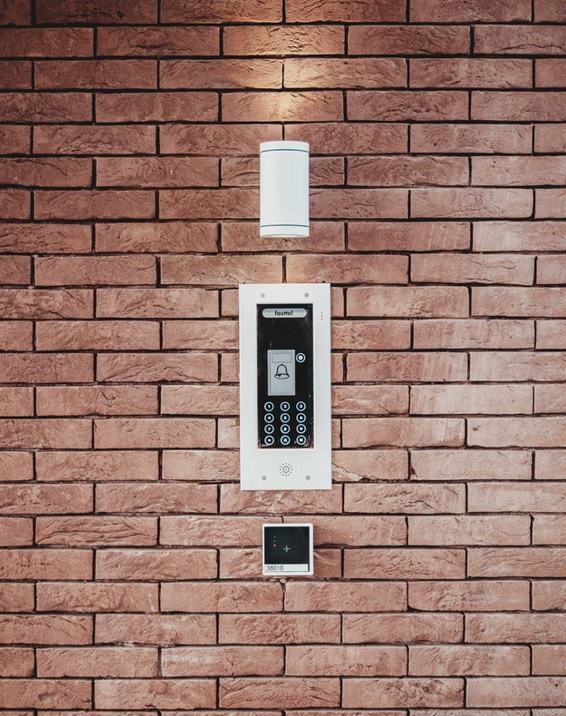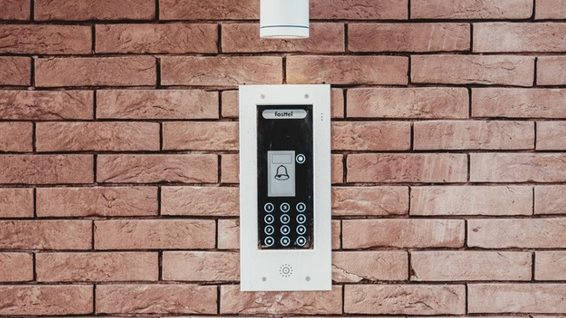If you’ve been doing some research on home security systems, you’ve undoubtedly come across the term “wireless”. And since it’s being used in a variety of situations, we wouldn’t blame you if you’re confused and don’t really know what the term is supposed to indicate.
To add to that you have the fact that “wireless” actually has two main meanings, and they’re relative to your home’s protection. The first one says that wireless is the communication path between all the sensors and detectors in your home and the centralized control unit in your home. This is oftentimes based on a short-range radiofrequency. The other one refers to the alarm system that communicates signals to a professional monitoring system via a cellular connection. That connection is enabled by a cellular radio, usually built into the control unit itself. In this case, wireless refers to the same meaning that cellular carriers use to describe their services.

Copyright: Unsplash | CC0 Public Domain
So, to conclude this, an alarm system can use wireless sensors but communicate with a traditional phone line, or over the internet. And while you’ll find a lot of people arguing that this isn’t a true wireless alarm system, they aren’t completely right. In addition, you have a system that has hard-wired sensors that must be connected to a control panel with a wire, but it uses a wireless, cellular radio to communicate to the outside world. This is also wireless.
Why Are They So Good?
The first and most important benefit of wireless systems that don’t use a wire to connect to the main control unit is that a burglar can’t just cut the cord from the camera to the control panel and disable the signal.
They’re also a lot more convenient because installing them and setting them up is a lot easier when you don’t have a host of cables to run. You get a lot more options for installation, too, and there are no unsightly cables to run all across the walls. You just set it up, connect it to the centralized unit, and you’re done.
With modern systems, you also get the option to use your home’s Wi-Fi network and router as a centralized unit, which is one less thing to buy. What this means, however, is that if you don’t have an internet connection at home (or a burglar decides to cut the lines outside), the system has no way of alerting you that something is happening, which could be critical.
On the other hand, if you opt for a wireless system that is hardwired to the centralized unit, but has a cellular connection to the monitoring center, you don’t have that problem. Even if they cut your phone line, the system relies on a completely different communication method, and it will still alert the monitoring center that something is up.
These systems are usually set up in a way that if one of the sensors and cameras loses a signal, for example, a burglar cutting the cord to the security camera, they’ll alert the monitoring system. They seldom have a single camera, and they do have other ways of checking whether it’s a malfunction, or if something is happening and they should alert the authorities.
Are They Right for You?
This is the burning question that bothers a lot of homeowners because wireless systems are usually more expensive than the traditional, completely hardwired ones. But those traditional systems oftentimes have no way of alerting you that something is happening, because they aren’t connected to the internet, and you won’t be alerted on your phone.
To add to this, with wireless systems you often have the ability to connect a lot of devices to each other and integrate their functionalities. For example, you could have a motion sensor in your back yard trigger a strong light that points towards that yard. If a burglar is sneaking around the bushes in an attempt to find a weak spot and break into your home, they’ll most likely do this at night. A strong light flashing in their face is reason enough for them to turn around and leave.
At the end of the day, whether or not you go for a wireless system (and which type of wireless you opt for), is up to you. But if it was our choice, we would definitely spend the extra money that goes towards getting a modern, completely up to date system that makes no compromises in terms of security, ease of use and convenience. We’ll always choose the one that will let us know something is up in the fastest way possible, and give us the most time to react.








Leave a Reply